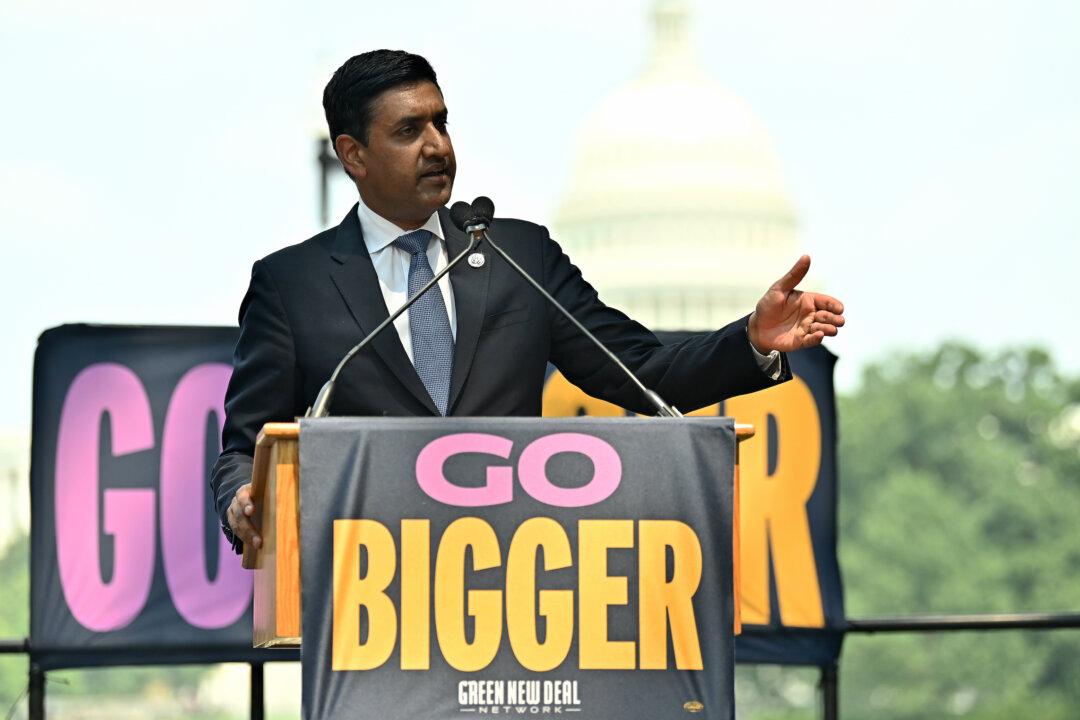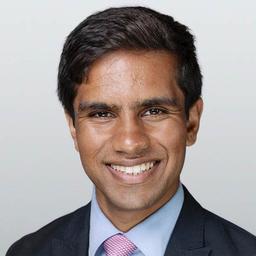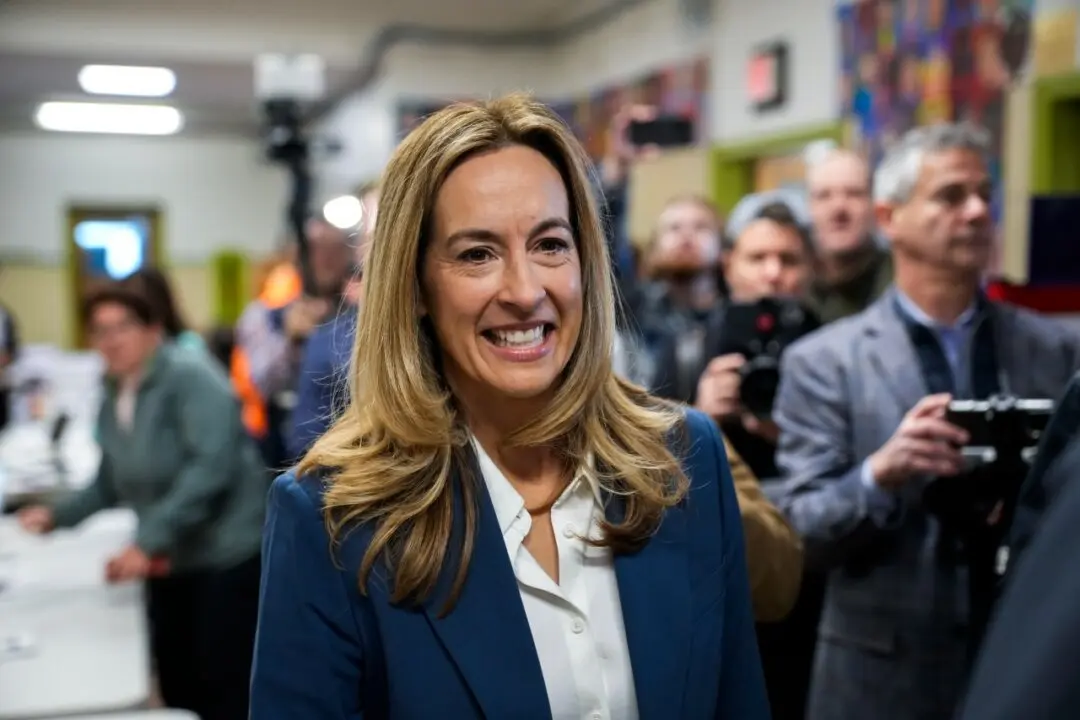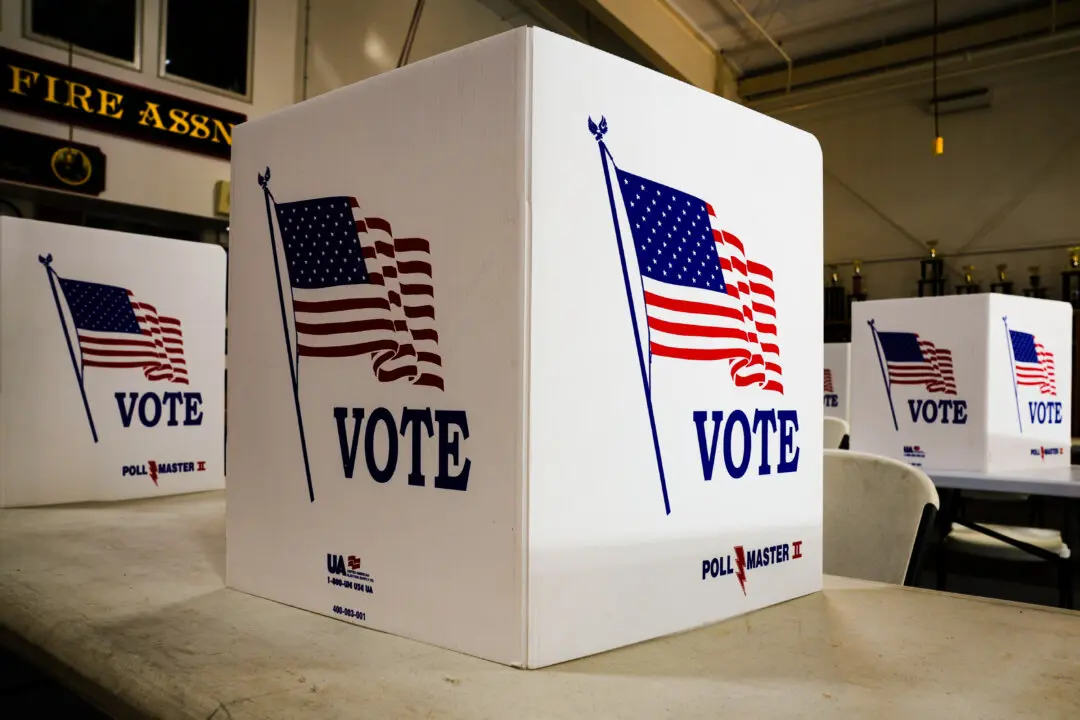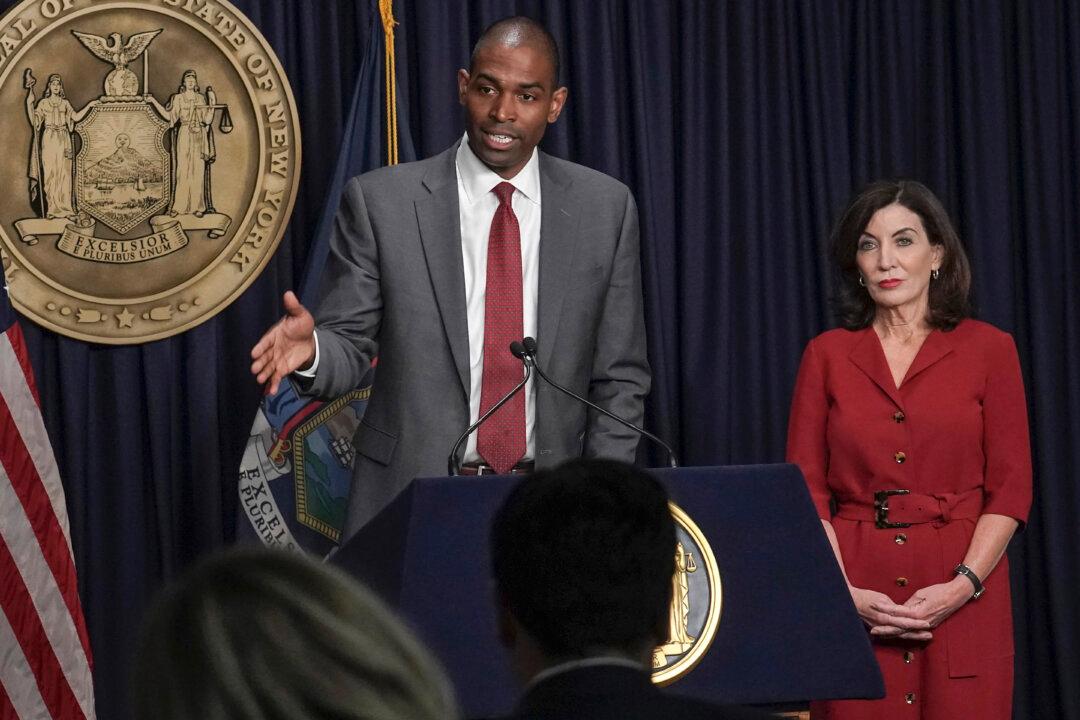Two weeks after President Donald Trump declared a national emergency to re-shore American manufacturing, Rep. Ro Khanna (D-Calif.) delivered a speech in Cleveland on April 14 that described his plan to restart U.S. manufacturing by raising taxes on Silicon Valley.
Khanna, who represents California’s 17th district, spoke to the City Club of Cleveland to explain his policy vision for higher taxes on his wealthy Silicon Valley constituents, describing himself as “the guy who represents more billionaires than any person in the world.”
